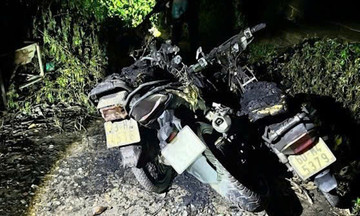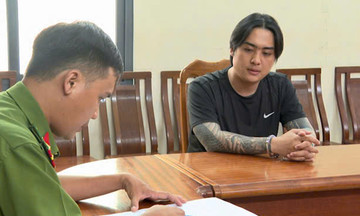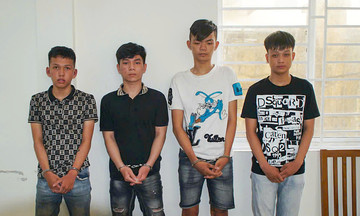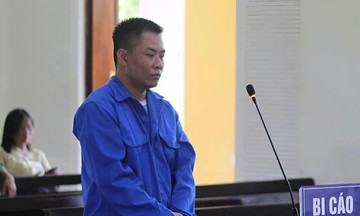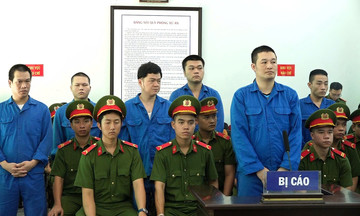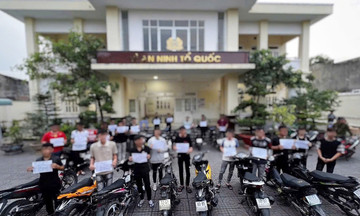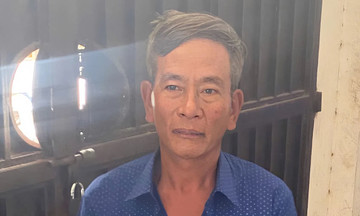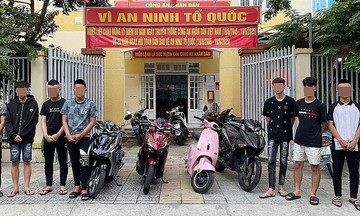On 27/12/2010, the Lu Rong Yu 2682 fishing vessel, owned by the Hamphat Seafood Food Company Limited, departed from Shidao Port in Rongcheng City, Shandong Province, with 33 crew members. The Lu Rong Yu 2682, a 30-40 meter long squid fishing vessel operating since 2000, set course for the Southeast Pacific Ocean.
Captain Li Chengquan, 42, from Liaoning Province, had assembled a crew of 32 from various backgrounds, including failed businessmen, recent graduates, and migrant workers. Most were seeking quick money, unaware of the demanding nature of the job. On 25/7/2011, Hamphat received a distress signal from the Lu Rong Yu 2682 and requested assistance. On 29/7, the Chinese vessel Yu Zheng 118 located the stricken Lu Rong Yu 2682, its cabin flooded, and towed it back to port on 12/8/2011. The 11 surviving crew members were subsequently arrested, unraveling the mystery of the tragedy.
The intermediate People’s Court of Weihai City determined that between 17/6 and 25/7/2011, while fishing near Chile, several crew members, dissatisfied with the long hours, intense labor, and low wages, plotted to seize the vessel and return to China to demand explanations from the company. Internal conflicts and other factors transformed the mutiny into a bloody massacre.
Crew members' contracts bound them to two years at sea, primarily catching, packaging, and freezing squid.
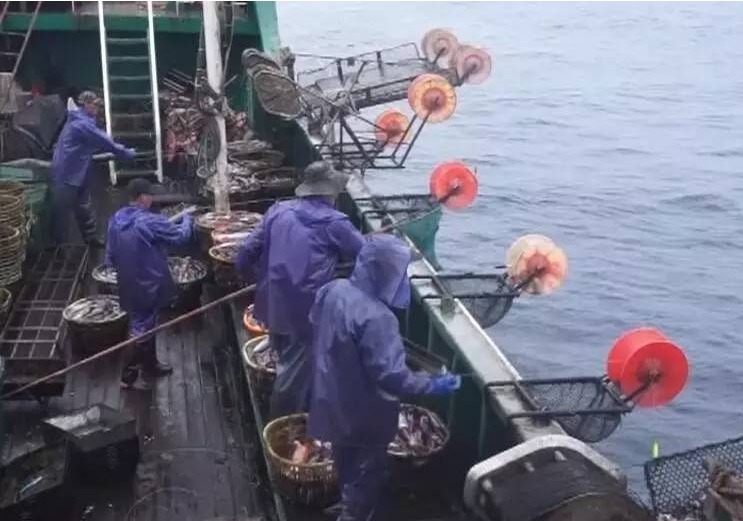 |
Crew members on a deep-sea squid fishing vessel. *Illustrative photo* |
The masterminds, Liu Gui Duo, 27, from Heilongjiang Province, and Bao De, from Inner Mongolia, along with Jiang Xiaolong, Liu Chengjian, Huang Jinbo, and others, decided to act after refueling near Chile on the evening of 16/6/2011.
Li Meican, a criminal psychology professor at the People’s Public Security University of China, explained that in group crimes, distinguishing between ringleaders and accomplices is crucial due to their differing psychologies. "Some initially joined Duo and De for personal gain, believing they could earn more," Professor Li said.
Ma Ngai, a professor at the Chinese University of Political Science and Law and deputy director of the Crime Psychology Research Center, noted that the ringleaders exploited the shared desire to return home quickly. The heavy workload and low pay fueled resentment towards the working conditions, benefits, and the captain.
"They justified their actions by blaming the captain, claiming they were forced into it. They believed they had legitimate reasons, denying responsibility and emphasizing the captain's faults, thus avoiding guilt," Professor Ma said.
Around 11 PM on 16/6/2011, Duo ordered Bo and Wang Peng to disable the ship's communication and navigation systems. Armed with knives and clubs, they stormed the captain's cabin, subdued him, and demanded a course change back to China.
The cook, Xia Qiyong, intervened, but Long stabbed and clubbed him before throwing him overboard. This marked the beginning of the massacre.
"Failing to stop after the first act of violence eliminates future chances of resistance. The ringleaders use the initial killing to coerce obedience, trapping accomplices in a dilemma," Professor Li analyzed.
According to Professor Ma, the incident was premeditated, with psychological and behavioral preparation for violence. While the goal was mutiny, their plans included contingencies for resistance. After the first murder, the situation changed. "Aware of their crime and fearing legal consequences, their actions became driven by self-preservation," Professor Ma said.
Facing death, the captain's psychology also shifted. The indictment states that Li Chengquan, Cui Yong, and Duan Zhipang joined Duo's group to save themselves.
Over a month later, suspecting dissent, Duo and his accomplices discovered chief engineer Wen Dou sabotaging equipment, causing fuel consumption to surge. They created a "blacklist," executing 6 suspected dissenters and 3 others. Even Duo and De, the initial partners, became suspicious of each other, culminating in Duo killing De's entire group.
Professor Ma explained that post-massacre, extreme stress and anxiety led to irrational thinking, heightened defensiveness, exaggerated threats, paranoia, and fear. In this climate of fear, a fight for survival seemed the only option.
The killers lost their initial fear, forcing even those uninvolved in the killings to participate. They accepted their actions. This shift, according to Professor Ma, was due to the isolated environment of the vessel, lack of external support, and the need to adapt. They also believed their shared guilt would prevent reporting, succumbed to peer pressure, and experienced group polarization, a sociopsychological phenomenon where group discussions lead to more extreme decisions than individual ones.
While the isolated environment amplified criminal emotions, Professor Li believes committing a crime depends on individual character. "Even in extreme circumstances, people can uphold righteousness," Professor Li said. He believes a few law-abiding, rational individuals with leadership qualities could have averted the tragedy. United action against the ringleaders could have prevented the situation from escalating.
However, the mostly young, inexperienced crew lacked the ability to control the situation. "The ringleaders weren't solely driven by greed; their motive was premeditated murder. They were ruthless, hence their leadership," Professor Li said. Such leaders, he added, inevitably dominate.
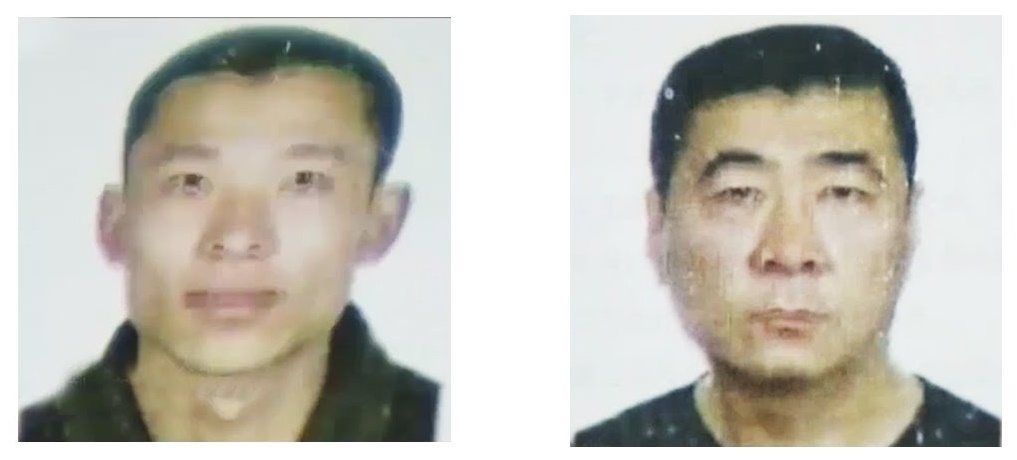 |
Liu Gui Duo (left) and Li Chengquan. *Photo: Sohu* |
The turning point came when flooding in the engine room caused the ship to list on the morning of 25/7/2011. Some crew members attempted to escape but were forced overboard by Duo's group and disappeared. Duo's group planned to flee to Japan, feigning abduction to avoid investigation. However, leaks forced them to reactivate communication and navigation systems to call for help.
On 19/7/2013, the Weihai City Intermediate People’s Court delivered its initial verdict in the Lu Rong Yu 2682 murder and piracy case. The five main culprits, Liu Gui Duo, Jiang Xiaolong, Liu Chengjian, Huang Jinbo, and Li Chengquan, received death sentences. Wang Peng received a suspended death sentence, and the remaining five received life or fixed-term imprisonment.
On 21/1/2015, the Shandong Provincial Higher People’s Court upheld the original verdict after dismissing the appeals. The five were executed on 23/3/2017.
Tue Anh (*via China Science Daily, The Paper, ifeng*)




